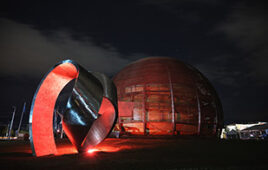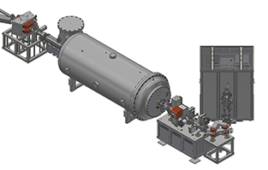Most Michigan and Pennsylvania residents say fracking is good for the economy, but have concerns about chemicals used and other environmental risks, according to a University of Michigan survey.
The results come from the National Surveys on Energy and Environment, a joint effort of the Center for Local, State, and Urban Policy (CLOSUP) at U-M’s Ford School of Public Policy and the Muhlenberg Institute of Public Opinion at Muhlenberg College in Allentown, Pa.
Fracking is the common term for hydraulic fracturing, which involves injecting a mixture of water, sand, and chemicals deep into the ground through encased wells at high pressure to create and expand fractures in the shale rock thus releasing trapped oil and natural gas.
This represents one of the very first attempts to survey public opinion on fracking in more than one state, says U-M professor Barry Rabe, director of CLOSUP and one of the report’s co-authors.
“Pennsylvania has been very aggressive about pursuing its shale resources whereas Michigan is just beginning to expand its involvement,” he says. “So we were somewhat surprised to find that many areas of public opinion were quite similar in the two states.”
The survey found that 82% of Michigan residents said that fracking was somewhat or very important to the state economy and in Pennsylvania that number was 84%.
Key economic benefits for the states include royalties or lease payments to landowners, jobs and fees collected from industry. For example, Pennsylvania collected $204 million last year through per-well impact fees.
But overall support for shale gas extraction came in at a middling 54% in Michigan and 49% in Pennsylvania, according to the results.
Residents of both states also support regulation and taxation of the hydraulic fracturing industry. And a majority, or 52% in Michigan and 58% in Pennsylvania, support imposing a moratorium on fracking until there is a fuller understanding of the possible risks.
“Respondents in both states feel that benefits from fracking would outweigh problems, but those views are tempered by strong support for regulation of the industry,” Rabe says. “This caution is further reflected in support for a moratorium while potential risks are more fully studied.”
Much of the debate over fracking has focused on the potential contamination of groundwater from injecting chemical laden fracking fluids into the well, stress on the existing water supply due to large amounts of freshwater needed, and then disposal of the wastewater.
For example, in Michigan’s Antrim Shale formation, vertical wells drilled to 500-to-2,000 feet below the surface use about 50,000 gallons of water per well. With horizontal drilling practices that increase the productivity of wells, such as those used in Pennsylvania, well depths of 4,000-to-9,500 feet use as much as 5 million gallons of water per well.
Other concerns include increased air emissions of methane and hazardous pollutants as a result of drilling procedures and the lack of disclosure by the industry of chemicals used in fracking fluids.
In addition, the use of deep-well injection techniques to store wastewater has been linked to expanded earthquake activity in Arkansas, Ohio, and the United Kingdom.
Pennsylvania ranks sixth and Michigan ranks 16th in natural gas production among 33 states.
The random telephone survey was conducted last October and November with 415 Michigan residents and 424 Pennsylvania residents. The survey had a margin of error of 5% either way.
Source: University of Michigan




